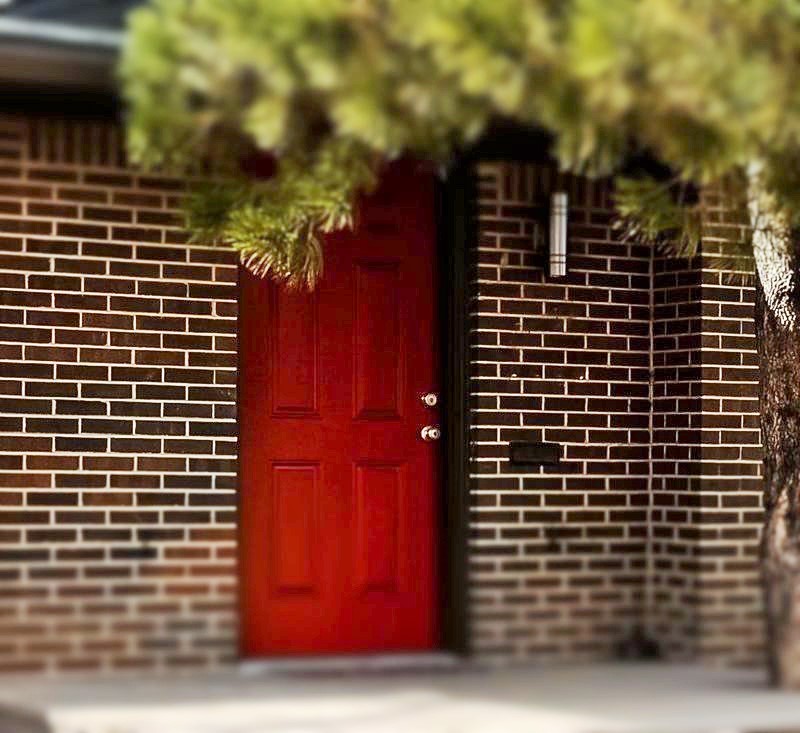Let’s talk about homeownership. Are you considering buying vs. renting?

Renters often ask me if it’s too late to buy a house: Are we heading for a big downturn? Are we too deep in the market cycle to buy? they wonder. Timing the real estate market perfectly is extremely difficult, perhaps impossible, and some of these potential buyers were the same renters that were sitting on the fence when the market was down, even once we’d passed the nadir. I believe that buying a home is less about the market and more about life; your life. So don’t try to time the market, take a look at your life, the low interest rates and time that!
1.) Are you getting married, starting a family, or tired of paying skyrocketing rent without having an asset to show for it? Would you like to have more space; a backyard for the dog, the kids, the BBQs, or the tomatoes? Do you like the idea of being part of a neighborhood, community? Perhaps you got a nice raise, job or promotion and you’d like to set down roots, do you plan on staying in one place for at least five years? Do you like the idea of investing in something that will build long-term wealth?
These are the types of questions you should be asking when you are considering homeownership.
Here’s another thing to keep in mind. In the U.S., the average total net worth of rental households is $5,800. Compare that with the average net worth of a home-owning household at $199,500 and you’ve got worth 34 times more than those who rent! There’s no doubt that over the long term, homeownership is a solid way to build wealth and financial security. I often advise my first-time buyers to get into something affordable now (not so easy in Denver these days, but doable) and then move up when life allows. If you can keep that first property as a rental, it’s a great way to invest in your financial future.
2. Interest rates remain at record lows but this can’t last forever. No one knows when they’re going to rise, but news this week gave hints of a rise as early as June. Though home prices have gone up the past several years, low interest rates continue to make homes relatively affordable— especially compared to renting. Once interest rates rise, the door to home affordability will begin to close for a lot of potential buyers, leaving them sorry they didn’t act when interest rates were at 50-year lows.
Let me break down the numbers. Assume you are purchasing a $210,000 condo with a 5 percent down payment. The Principle + Interest payment at 4% interest would be $952 per month (tax and insurance and HOA not included). An interest rate increase of one percent (5%) would take your payment of $1,070 per month—an increase of $1,416 a year. Now assume that rates tick up to 6 percent. That increase would result in a 21 percent increase in payments from $952 to $1,196. Where you really see the effect of these increases is when you hold the property for the full 30 years. On a $210,000, 30-year fixed-rate mortgage that increases from 4 to 5 percent, the borrower who obtains the 5 percent loan would pay an additional $42,772 in extra interest as opposed to the borrower who paid just 4 percent interest. Though most buyers consider their monthly payment as most important, when you look at the life of the loan you’re paying a lot more in the total loan amount. This is a great reason to make a “move-up” move right now. Say you’ve outgrown your place, it may be time to cash out and get your “forever home”, or like I mentioned, use your current home as an income property and let your renters pay off your mortgage.
The main reason the average home owner has so much more personal wealth than the average renter is that homes appreciate in value. Over the past 45 years, homes in metro Denver appreciated 6.3 percent per year. If you buy a $200,000 home, you can expect over the long term its value to rise about 6 percent every year. This means you’d make $12,000 in appreciation the first year, an additional $12,720 the second year, another $13,483 in the third year, and on and on. Contrary to popular belief, only 4 of the past 45 years did prices actually fall in metro Denver.
If you’re still wondering whether you’d be better off renting or buying, Trulia built a great Rent-vs-Buy tool. Answer a few simple questions and the system tells you whether it makes more financial sense over the next seven years to rent or purchase. I think it’s worth a couple minutes of your time to see what you can learn – you’ll really like it! 
Key Messages for May
Prices are up 8% in the prior 12 months vs historical 6%. Inventories are tighter than last year, especially for small, lower priced homes. In 2016, we expect 8-9% appreciation, flat unit sales volume increases, and continued tight inventories.
















